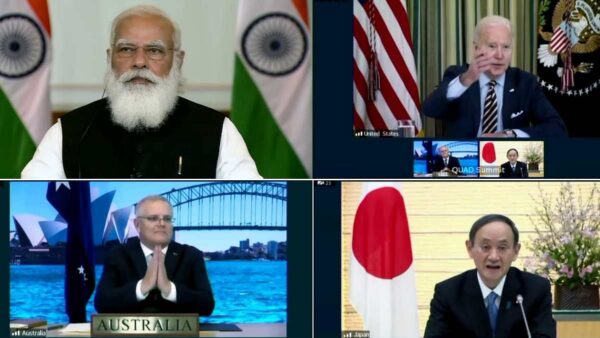Two days after China held a virtual peak with Central Asian countries, India too stepped in and Prime Minister Narendra Modi pitched for “ an intertwined approach for indigenous connectivity and cooperation for the coming 30 times” He also flagged Afghanistan as a common concern and said that their “ collective cooperation has come indeed more important for indigenous security and stability” Read Further| Putin caught Russia’s hollowed-out forces, contemporizing the military “ We all have the same enterprises and objects for indigenous security. We’re each concerned about the developments in Afghanistan,” Modi said at the first virtual peak with the Central Asian leaders. “ In this environment also, our collective cooperation has come indeed more important for indigenous security and stability,” he said.
The virtual peak saw the participation of the five chairpersons — Kazakhstan’s Kassym-Jomart Tokayev, Uzbekistan’s Shavkat Mirziyoyev, Emomali Rahmon of Tajikistan, Turkmenistan’s Gurbanguly Berdimuhamedow and Sadyr Japarov of Kyrgyz Republic. This was the first engagement of its kind between India and the Central Asian countries at the position of leaders.
China held a peak with the leaders of Central Asian countries on January 25, at a veritably short notice, after India had blazoned its peak. China’s President Xi Jinping had offered USD 500 million in backing to the region and had witnessed to strengthen trade with the countries On Thursday, Modi underscored the three main objects of the peak First, he said, “ to make it clear that cooperation between India and Central Asia is essential for indigenous security and substance. From Indian point of view, I would like to emphasise that Central Asia is central to India’s vision of an intertwined and stable extended neighbourhood. The alternate ideal, he said, is to give “ an effective structure to our cooperation. This will establish a frame of regular relations at different situations and among colorful stakeholders.”
And, the third ideal is “ to produce an ambitious roadmap for our cooperation” “ Through this, we will be suitable to borrow an intertwined approach for indigenous connectivity and cooperation for the coming 30 times,” he said The peak is emblematic of the significance attached by the leaders of India and the Central Asian countries to a comprehensive and enduring India-Central Asia cooperation The participation of the registers of National Security Councils of Central Asian countries in the Regional Security Dialogue on Afghanistan held in New Delhi in November last time outlined a common indigenous approach on Afghanistan.
The peak is being held a day after Republic Day fests saw no foreign head of state or government as the principal guest. The leaders of the five central Asian countries were likely to be the principal guest, but the country saw a rise in COVID-19 cases which led to elided fests Modi underscored that the politic relations between India and Central Asia countries have completed 30 meaningful times. “ Our cooperation has achieved numerous successes over the once three decades. And now, at this pivotal juncture, we must define an ambitious vision for the coming times as well. A vision that can fulfil the bournes of our people, especially the youngish generation, in the changing world,” he said.
In this environment, Modi also underscored the significance of each of these countries.
Kazakhstan has come a vital mate for India’s energy security, he said, as he expressed condolences for the recent loss of life and property in Kazakhstan On Uzbekistan, he said, “ Our state governments are also active mates in our growing cooperation with Uzbekistan. This includes my home state of Gujarat as well With Kyrgyzstan, he said, “ We’ve an active cooperation with Kyrgyzstan in the field of education and high- altitude exploration. Thousands of Indian scholars are studying there.”
With Tajikistan, he said, “ We’ve a longstanding cooperation in the field of security. And we’re continuously strengthening it And, Turkmenistan, he said, “ is an important part of Indian vision in the field of indigenous connectivity, which is apparent from our participation in the Ashgabat Agreement” The first India-Central Asia Summit, the MEA said, is a reflection of the country’s growing engagement with the Central Asian countries, which are a part of India’s “ extended neighbourhood”.
Modi had paid a visit to all Central Asian countries in 2015. Latterly, there have been exchanges at high situations at bilateral and multinational forums The commencement of the India-Central Asia Dialogue at Foreign Ministers’ position, the third meeting of which was held in New Delhi from December 18-20, 2021, has handed an motivation to India-Central Asia relations.

